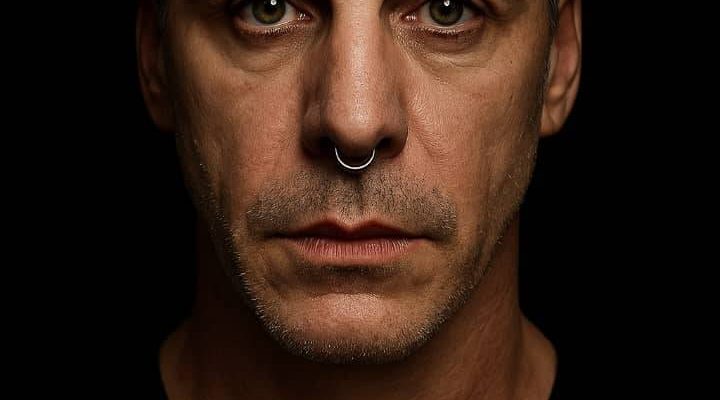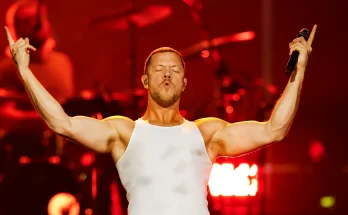The announcement of Netflix releasing the official trailer for the highly anticipated Till Lindemann documentary has sent shockwaves throughout the music world and far beyond. Fans of Rammstein, admirers of Lindemann’s solo work, and cultural observers eager to peel back the layers of one of the most enigmatic frontmen in modern rock history now have something tangible to look forward to. The trailer, unveiled with little warning but with maximum impact, offers a rare glimpse into the life, artistry, and controversies of a man who has spent decades at the forefront of both awe and scrutiny. In typical Lindemann fashion, the teaser is provocative, intense, poetic, and layered with mystery, ensuring that audiences worldwide are already marking their calendars for what promises to be one of Netflix’s boldest and most unflinching documentaries to date.
Till Lindemann has long been more than just the voice of Rammstein. He is a cultural icon whose performances have become ritualistic explosions of fire, theatre, and raw emotional energy. Yet for all his fame and notoriety, the man behind the stage persona has remained a guarded figure, often deflecting interviews, staying reclusive, and letting his art speak louder than any words. The documentary, hinted at in the trailer, promises to pierce that veil of mystery and to present Lindemann in his many dimensions: as a poet, a performer, a provocateur, and above all, a human being with complexities that few outside his circle have ever witnessed. For fans who have followed his career since Rammstein’s rise in the mid-1990s, this will feel like a pilgrimage into the very core of a man who has become synonymous with fire, rage, and dark beauty.
The trailer itself is a masterstroke of editing and tension. It opens with archival concert footage, the flames of Rammstein’s pyrotechnics lighting up massive stadiums, before cutting suddenly to quiet moments of Lindemann writing in solitude. His voice narrates in German, reciting fragments of his poetry, while English subtitles roll across the screen. These verses are haunting, melancholic, and deeply personal, contrasting sharply with the bombastic spectacle of his stage persona. This juxtaposition is central to the film’s appeal: the collision between Till Lindemann the myth and Till Lindemann the man. The trailer hints at interviews with bandmates, collaborators, and cultural critics, though Lindemann himself remains at the heart of every frame.
One striking moment from the trailer shows Lindemann walking alone through a desolate landscape, possibly in his native Mecklenburg-Vorpommern countryside. The imagery speaks to isolation, endurance, and the kind of reflective solitude that seems worlds away from the chaos of Rammstein’s stadium shows. Another clip cuts back to him in rehearsal, drenched in sweat, barking instructions with military precision, reminding viewers that his reputation as a perfectionist and relentless visionary is not exaggerated. Between these poles—the poet and the commander—the documentary promises to explore the contradictions that make Lindemann such a compelling figure.
The anticipation surrounding this release is immense, and for good reason. Rammstein has become not just a band but a cultural institution, their influence spanning continents and generations. Central to their mythos is Lindemann himself: his deep, guttural voice, his theatrical delivery, and his unflinching commitment to provocation. Whether it’s the infamous flame-throwing acts on stage, the grotesque yet brilliant music videos, or the chilling poetry that has often shocked even loyal fans, Lindemann has built a legacy on discomfort and fascination. Yet behind every provocation lies intention, and the documentary seems poised to reveal the philosophy behind the madness.
What makes this Netflix project even more remarkable is its timing. At a point where Rammstein has recently concluded another wave of sold-out global tours, and where Lindemann has faced waves of both adulation and controversy, the opportunity to capture his narrative feels both urgent and necessary. Public debate surrounding Lindemann has often painted him in extremes: either as a genius of performance art or as a provocateur who pushes boundaries too far. Rarely has there been space for nuance, and rarely has the man himself spoken at length. Netflix, known for its bold documentary storytelling, appears ready to challenge those simplistic labels and instead present a portrait as multifaceted as the man himself.
The trailer also makes clear that this is not a sanitized or overly polished documentary. The glimpses of footage suggest rawness and vulnerability. One moment shows Lindemann visibly emotional, his voice breaking as he speaks about the price of fame. Another moment includes candid shots of tense exchanges with collaborators, suggesting that the film will not shy away from conflict or from depicting the less flattering aspects of his character. For a man often described as larger-than-life, these moments of fragility may be the most powerful revelations of all.
Yet the documentary is not only about Lindemann’s personal life. It is also about his art in its broadest sense. The trailer features segments dedicated to his poetry collections, his controversial music videos, and his ventures beyond Rammstein, including his solo project Lindemann. Viewers will be treated to behind-the-scenes footage of studio sessions, video shoots, and perhaps even his ventures into acting and visual arts. By covering the full spectrum of his creative output, the film is positioning itself as both biography and artistic exploration, giving equal weight to the man and his craft.
For long-time fans, the Netflix release will undoubtedly serve as both celebration and catharsis. Many have followed Lindemann since Rammstein’s 1995 debut Herzeleid, through albums that defined industrial metal and shocked the mainstream, to stadium tours that redefined live performance as theatrical ritual. To now have access to a film that turns the lens inward is a chance to connect with the artist on a level that has long been out of reach. For newer fans, particularly those drawn in by Rammstein’s resurgence in recent years, the documentary will serve as a crash course in understanding why Lindemann is considered not just a frontman, but one of the most enigmatic figures in contemporary music.
The cultural impact of this documentary will extend beyond the music scene. Lindemann has always occupied a space where music intersects with politics, morality, and art. His lyrics have tackled taboo topics, his performances have courted censorship, and his poetry has sparked debates about the limits of art and free expression. By bringing his story to Netflix, the largest streaming platform in the world, those debates will be reignited on a global scale. The trailer itself, released across social media platforms, has already triggered discussions in forums, with fans dissecting every line, every visual cue, and every possible clue as to the film’s stance on Lindemann’s legacy.
The anticipation is also heightened by the cinematic quality of the trailer. The production values suggest that this will not be a straightforward rock documentary but a visually rich experience, blending concert footage, interviews, archival material, and cinematic recreations. The score, teased briefly in the trailer, mixes orchestral arrangements with industrial tones, echoing the duality of Lindemann’s career: the blend of brutal power and haunting beauty. This aesthetic choice indicates that the film will not simply recount events but will aim to immerse viewers in the very essence of Lindemann’s world.
One cannot overlook the significance of Netflix choosing to back this project. The platform has become known for its ability to bring subcultural phenomena into the mainstream, from niche sports to underground music movements. By investing in a documentary about Till Lindemann, Netflix is acknowledging his influence not just within heavy metal or German music but on global pop culture at large. For many viewers outside of Europe who may only know Rammstein from their headline-grabbing tours, the documentary will serve as an entry point into the complex and often misunderstood world of German industrial art.
In the days following the trailer’s release, fan reactions have been overwhelmingly intense. Social media has been flooded with tributes, speculations, and emotional responses. Many are expressing gratitude that Lindemann has chosen, finally, to allow cameras this close. Others are bracing themselves for uncomfortable truths, acknowledging that Lindemann’s career has not been without controversy. Yet even among critics, there is recognition that this documentary represents a cultural moment: a chance to confront the myths, the legends, and the realities of one of the most polarizing figures in modern music.
Ultimately, the Till Lindemann documentary is shaping up to be more than just a film about a musician. It is a meditation on art, fame, and the burdens of embodying both. It is a story about a man who has lived his life in extremes—extremes of sound, of imagery, of emotion—and who now seems ready to reveal what those extremes have cost and what they have given. The Netflix trailer offers only glimpses, but those glimpses are enough to ignite imaginations and to promise that the full documentary will be a journey unlike any other.
As the release date approaches, one can already sense the cultural tremors. Concert halls, poetry readings, and online fan forums will all buzz with anticipation. Till Lindemann, the fire-breathing titan of the stage, is stepping into the cinematic spotlight not as a character in a spectacle, but as himself—a man whose story is as dark, complex, and compelling as the art he has created. Netflix has thrown open the door, and the world is ready to walk through it, into the heart of a legend.



